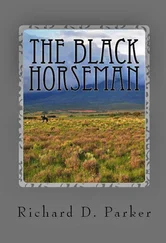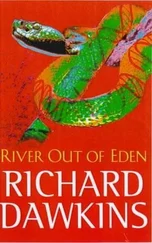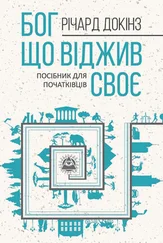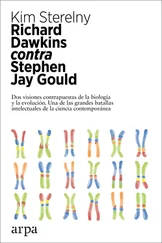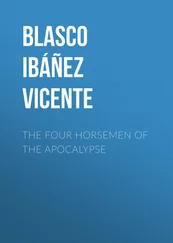Richard Dawkins - The Four Horsemen, episode 1
Здесь есть возможность читать онлайн «Richard Dawkins - The Four Horsemen, episode 1» весь текст электронной книги совершенно бесплатно (целиком полную версию без сокращений). В некоторых случаях можно слушать аудио, скачать через торрент в формате fb2 и присутствует краткое содержание. Жанр: Фантастика и фэнтези, на английском языке. Описание произведения, (предисловие) а так же отзывы посетителей доступны на портале библиотеки ЛибКат.
- Название:The Four Horsemen, episode 1
- Автор:
- Жанр:
- Год:неизвестен
- ISBN:нет данных
- Рейтинг книги:3 / 5. Голосов: 1
-
Избранное:Добавить в избранное
- Отзывы:
-
Ваша оценка:
- 60
- 1
- 2
- 3
- 4
- 5
The Four Horsemen, episode 1: краткое содержание, описание и аннотация
Предлагаем к чтению аннотацию, описание, краткое содержание или предисловие (зависит от того, что написал сам автор книги «The Four Horsemen, episode 1»). Если вы не нашли необходимую информацию о книге — напишите в комментариях, мы постараемся отыскать её.
The Four Horsemen, episode 1 — читать онлайн бесплатно полную книгу (весь текст) целиком
Ниже представлен текст книги, разбитый по страницам. Система сохранения места последней прочитанной страницы, позволяет с удобством читать онлайн бесплатно книгу «The Four Horsemen, episode 1», без необходимости каждый раз заново искать на чём Вы остановились. Поставьте закладку, и сможете в любой момент перейти на страницу, на которой закончили чтение.
Интервал:
Закладка:
Richard Dawkins
The Four Horsemen, episode 1
Put into readable transcript by: Aesthetic Atheist
From left to right (on screen):
[CH] Christopher Hitchens
[DD] Daniel Dennett
[RD] Richard Dawkins
[SH] Sam Harris
[RD] One of the things we've all met is the accusation that we are strident or arrogant, or vitriolic, or shrill. What do we think about that?
[DD] Hah! Yeah, well I'm amused by it, because I went out of my way in my book to address reasonable religious people. And I test-flew the draft with groups of students who were deeply religious. And indeed, the first draft incurred some real anguish. And so I made adjustments and made adjustments. And it didn't do any good in the end because I still got hammered for being for being rude and aggressive. And I came to realise that it's a no-win situation. It's a mug's game. The religions have contrived to make it impossible to disagree with them critically without being rude.
[RD] Without being rude.
[DD] You know, they sort of play the hurt feelings card at every opportunity, and faced with a choice of, well, am I gonna be rude or am I going to articulate this criticism? I mean, am I going to articulate it, or am I just gonna button my lip?
[SH] Right, well, that's what it is to trespass a taboo. I think we're all encountering the fact that that religion is held off the table of rational criticism in some kind of formal way even by, we're discovering, our fellow secularists and our fellow atheists. You know, just leave people to their own superstition, even if it's abject and causing harm, and don't look too closely at it.
[DD] Now that was, of course, the point of the title of my book is there is this spell and we gotta break it. But if the charge of offensiveness in general is to be allowed in public discourse, then, without self-pity, I think we should say that we, too, can be offended and insulted. I mean, I'm not just in disagreement when someone like Tariq Ramadan, accepted now at the high tables of Oxford University as a spokesman, says the most he'll demand, when it comes to the stoning of women, is a moratorium on it. I find that profoundly … much more than annoying.
[SH] Right, yeah, but I think …
[CH] Insulting, not only insulting, but actually threatening.
[SH] But you're not offended. I don't see you taking things personally. You're alarmed by the liabilities of certain ways of thinking, as is in Ramadan's case.
[CH] Yes. But he would say, or people like him would say that if I doubt the historicity of the prophet Muhammad, I've injured them in their deepest feelings.
[SH] Right.
[CH] Well I am, in fact. I think all people ought to be offended, at least in their deepest integrity by, say, the religious proposition that without a supernatural, celestial dictatorship, we wouldn't know right from wrong. That we only live by …
[SH] But are you really offended by that? Doesn't it just seem wrong with you?
[CH] No. I say only, Sam, that if the offensiveness charge is to be allowed in general, and arbitrated by the media, then I think we're entitled to claim that much, without being self-pitying, or representing ourselves as an oppressed minority, which I think is an opposite danger, I will admit. I'd like to add also that that I agree with Daniel that there is no way in which the charge against us can be completely avoided, because what we say does offend the core, very core, of any serious religious person, (inaudible). We deny the divinity of Jesus, for example, that maybe will be terrifically shocked and possibly hurt. It's just too bad.
[RD] I'm fascinated by the contrast between the amount of offence that's taken by religion and the amount of offense that people take against anything else, like artistic taste. Your taste in music, your taste in art, your politics. You could be not exactly as rude as you'd like, but you could be far, far more rude about such things. And I'd quite like to try to quantify that, to actively research about it, actually test people with statements about their favourite football team, or their favourite piece of music or something, and see how far you can go, before they take offense, compared to … well, is there anything else, apart from say, how ugly your face is, that gives such …
[CH] Or your husband's or wife's, or girlfriend's or partner's faces.
[RD] Yeah, yeah, yeah, yes.
[CH] Well it's interesting that you say that, because I regularly debate with a terrible man called John Donahue, of the Catholic Defence League, and he actually is righteously upset by certain transient modern art, which tend to draw attention to themselves by blasphemy. For example Serrano's '"Piss Christ", or the elephant dung on the Virgin, and so on. And indeed, I think think it's quite important that we share,
with Sophocles and other pre-monotheists, a revulsion to desecration or to profanity, that we don't want to see churches desecrated …
[RD] No, indeed not.
[CH] or religious icons trashed, and so forth. We share an admiration for at least some of the aesthetic achievements of religion.
[SH] Right. I think this whole notion of … I think our criticism actually more barbed than that, in the sense that we're not … we are offending people, but we are also telling them that they're wrong to be offended. I mean, physicists aren't offended when their view of physics is disproved or challenged. I mean, this is just not the way rational minds operate when they're really trying to get at what's true in the world. And religions purport to be representing reality. And yet there's this peevish, tribal, and ultimately dangerous, reflexive response to having these ideas challenged. I think we're pointing to the total liability of that fact.
[DD] Well, and too, there's no polite way to say to somebody …
[SH] You've wasted your life! (laughter)
[DD] do you realise you've wasted your life? Do you realise that you've just devoted all your efforts and all your goods to the glorification of something which is just a myth? Or have you ever considered - even if you say have you even considered the possibility that maybe you've wasted your life on this? There's no inoffensive way of saying that. But we do have to say it, because they should jolly well consider it. Same as we do about our own lives.
[SH] Oh, absolutely.
[RD] Dan Barker's making a collection of clergymen who've lost their faith but don't dare say so, because it's their only living. It's the only thing they know what to do.
[SH] Yeah, I've heard from one of them, at least.
[RD] Have you? Yes.
[CH] I used to have this when I was young, ongoing arguments with members of the Communist Party. They sort of knew that it was all up with the Soviet Union. Many of them have suffered a lot, and sacrificed a great deal, and struggled, you know, manfully to keep what they thought was the great ideal life. Their mainspring had broken, but they couldn't give it up, because it would involve a similar concession. But certainly, I mean, if anyone said to me, "how could you say that to them about the Soviet Union? Didn't you know you were going to really make them cry and hurt their feelings?" I would've said don't be ridiculous! Don't be absurd! But I find it in many cases almost an exactly analogous argument.
[DD] When people tell me I'm being rude and vicious and terribly aggressive in the way that I say … well if I were saying these things about the pharmaceutical industry or the oil interests, would it be rude? Would it be off-limits? No.
[RD] 'Course it wouldn't.
[DD] Well, I want religion to be treated just the way we treat the pharmaceuticals and the oil industry. I'm not against pharmaceutical companies. I am against some of the things they do. But I just want to put religions on the same page with them.
Читать дальшеИнтервал:
Закладка:
Похожие книги на «The Four Horsemen, episode 1»
Представляем Вашему вниманию похожие книги на «The Four Horsemen, episode 1» списком для выбора. Мы отобрали схожую по названию и смыслу литературу в надежде предоставить читателям больше вариантов отыскать новые, интересные, ещё непрочитанные произведения.
Обсуждение, отзывы о книге «The Four Horsemen, episode 1» и просто собственные мнения читателей. Оставьте ваши комментарии, напишите, что Вы думаете о произведении, его смысле или главных героях. Укажите что конкретно понравилось, а что нет, и почему Вы так считаете.



